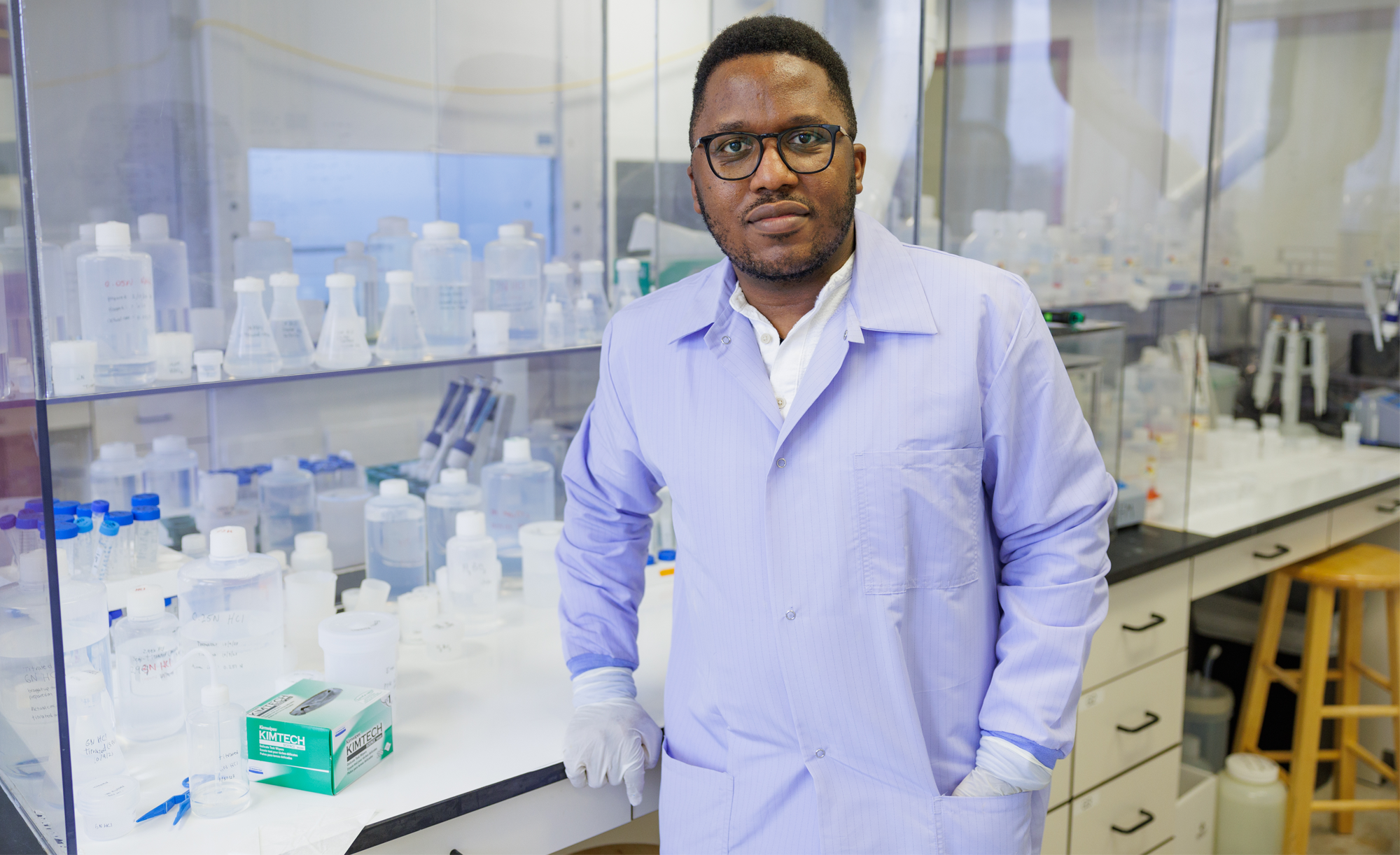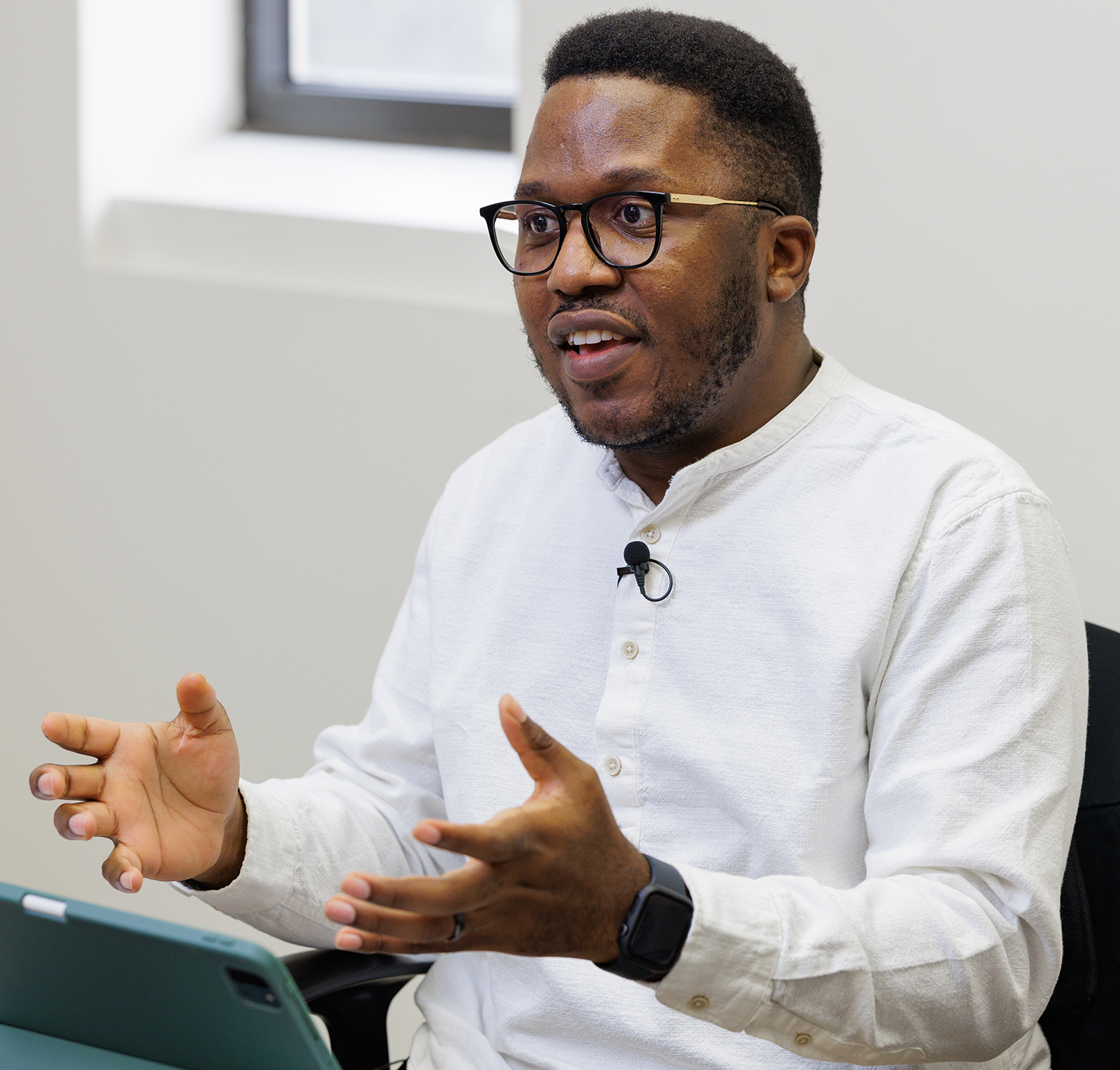
Imagine studying a time when Earth’s oceans were so devoid of oxygen that most marine life could barely survive. For Dr. Lucien Nana Yobo, an assistant professor in Texas A&M University's Department of Geology and Geophysics, uncovering these dramatic events is more than just a job—it’s a passion.
Born in Cameroon, Nana Yobo’s journey to Texas A&M has been as dynamic as the planet he studies. After completing his early education in Cameroon, he moved to California to earn his undergraduate degree in geology at Fresno State University. He continued his studies at the University of Nebraska-Lincoln for graduate school, then earned his Ph.D. in geology at the University of Houston. Three years ago, he joined the faculty at Texas A&M, where he now dives deep into Earth’s history.
“I often tell my students that Earth’s history is one of the greatest love stories ever told,” Nana Yobo said. “It is a story of adaptation, resilience and transformation in which our ever-evolving planet is shaped by dynamic processes. From the catastrophic upheavals to tectonic reconstruction, Earth’s dynamic nature stands as a testament to the deep, unbreakable connections that have continuously shaped life and landscapes through the ages.”
Nana Yobo specializes in isotope geochemistry, which examines small variations in atoms, called isotopes, to unlock secrets of the planet’s past. His research focuses on periods of extreme environmental change caused by emplacements of large igneous provinces, such as Ocean Anoxic Event 2 (OAE2), which occurred about 94 million years ago when the oceans ran out of oxygen, leading to ocean acidification. He also studies other key events, like the Paleocene-Eocene Thermal Maximum (PETM) around 56 million years ago, which caused dramatic shifts in global temperatures, and the Younger Dryas, a rapid period of global cooling about 12,000 years ago that altered weather patterns and ecosystems.
I often tell my students that Earth’s history is one of the greatest love stories ever told.

By analyzing the causes of these events, Nana Yobo aims to understand how similar phenomena could affect the future. His research, which spans the globe, examines rock and sediment samples left behind by the now-extinct Western Interior Seaway, which once stretched through what is now the U.S. and Canada, and the still-existing Benue Trough in Nigeria. His work also extends to the open ocean, where he has sailed on an International Ocean Discovery Program expedition.
“Studying these ancient events helps us predict future climate scenarios and explore ways to reduce their impacts,” Nana Yobo said. “By learning how Earth adapted to past changes, we can better prepare for what’s ahead.”
In the classroom, Nana Yobo brings his passion for discovery to life. He teaches Historical Geology, where students explore the planet’s evolution, geochemistry and radiogenic isotope geology, which focuses on advanced techniques for analyzing Earth’s age and chemistry. His enthusiasm is contagious as he encourages students to uncover the rich history of the planet.
Looking ahead, Nana Yobo hopes to develop models that make his research accessible to policymakers and researchers across fields. By studying events like OAE2 and PETM, he aims to create tools that simulate potential climate scenarios. These models could provide valuable insights on how to address environmental challenges, such as ocean oxygen depletion or rapid shifts in global temperatures.
“Understanding Earth’s past isn’t just about science—it’s storytelling,” Nana Yobo said. “Every layer of rock, every isotope we measure, is a chapter in the greatest story ever told. And I’m honored to help tell it.”

